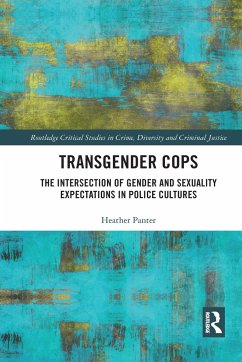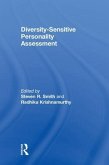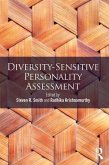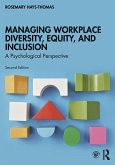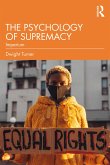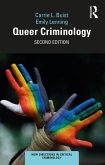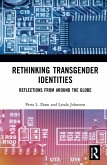Building on comparative research in the U.K. and the U.S.A., this is the first book focused specifically on transgender experiences within policing. It examines the issues faced by the transgender community within policing and explores how gender, and the non-conformity of it, is perceived within police cultures. Moreover, it provides an on-going critique of the queer criminology movement and why it is crucial to policing studies, emphasising the specific importance of transgender issues therein.
This empirical book provides qualitative data from American officers and English and Welsh constables on transgender police. The following research questions are addressed: What are the perceptions of cisgender officers towards transgender officers, and what are the consequences of these perceptions? What are the occupational experiences and perceptions of officers who identify as transgender within policing? Finally, what are the reported positive and negative administrative issues that transgender individuals face within policing? The author concludes by discussing the empirical, theoretical and policy contributions of this research and offers some final thoughts on policy recommendations and directions for future research.
A strong contribution to the literature in critical criminology and queer criminology, this book will also be of interest to those in the fields of gender studies, sociology, public administration, management studies and policing studies.
This empirical book provides qualitative data from American officers and English and Welsh constables on transgender police. The following research questions are addressed: What are the perceptions of cisgender officers towards transgender officers, and what are the consequences of these perceptions? What are the occupational experiences and perceptions of officers who identify as transgender within policing? Finally, what are the reported positive and negative administrative issues that transgender individuals face within policing? The author concludes by discussing the empirical, theoretical and policy contributions of this research and offers some final thoughts on policy recommendations and directions for future research.
A strong contribution to the literature in critical criminology and queer criminology, this book will also be of interest to those in the fields of gender studies, sociology, public administration, management studies and policing studies.

